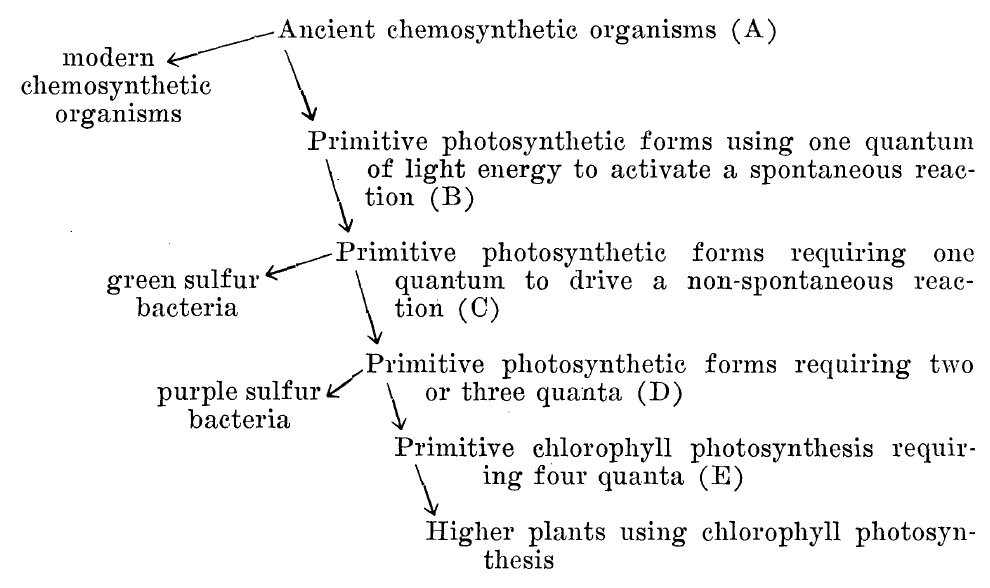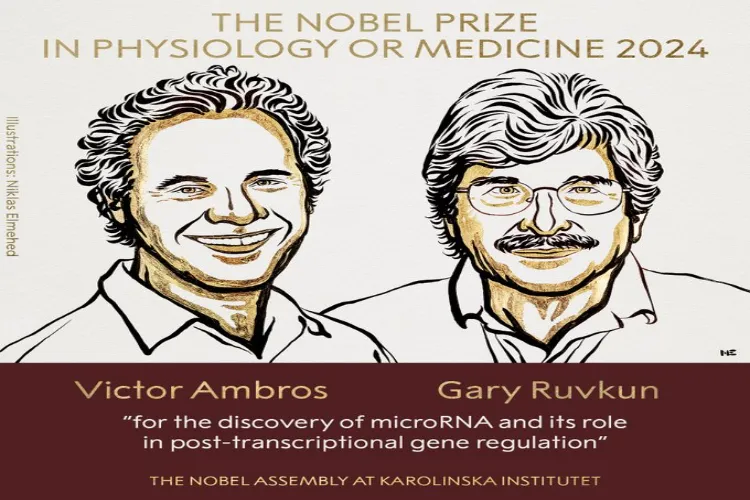Quantum computing is poised to revolutionize technology as we know it, harnessing the intriguing principles of quantum mechanics to perform calculations at unprecedented speeds. This cutting-edge field has witnessed significant milestones recently, particularly through the innovative techniques employed by researchers at Harvard, who have successfully trapped molecules to execute complex quantum operations. Utilizing molecular quantum computers, which leverage the intricate internal structures of trapped molecules, paves the way for future advancements in areas including medicine, science, and advanced computing. With quantum gates facilitating these operations, the potential to outperform classical computers becomes increasingly tangible. Such breakthroughs in quantum computing not only highlight the power of advanced research but also open up a new frontier in understanding and utilizing the quantum world to our advantage.
The advent of quantum computation marks a transformative phase in the realm of information technology, employing alternatives to traditional computation methods seen in everyday devices. This innovative approach, which emphasizes the manipulation of qubits rather than simple bits, leverages advanced concepts from quantum physics. Recent breakthroughs in trapped molecule techniques, particularly those developed by teams such as Harvard’s, illustrate the tremendous potential of employing these intricate systems for complex calculations. The integration of quantum gates within this framework further enhances capabilities, enabling operations that promise far superior performance compared to classical computers. As we delve deeper into this realm, terms like molecular quantum computing and quantum operations will become part of our everyday vocabulary, reflecting the profound impact this technology will have on multiple sectors.
The Breakthrough in Quantum Computing: Trapped Molecules
Recent advancements in quantum computing have brought attention to the innovative experiments conducted at Harvard University, where a team led by Kang-Kuen Ni successfully trapped molecules to perform quantum operations. This monumental leap signifies not just a technical achievement but also opens the door to new possibilities in the realm of molecular quantum computing. For many years, researchers have encountered challenges associated with using complex molecules as qubits due to their delicate nature. This groundbreaking work employs ultra-cold polar molecules, minimizing their erratic behavior to enhance reliability in quantum computations.
The significance of successfully trapping molecules cannot be understated; it represents a crucial development in the ongoing quest to harness the full potential of quantum systems. By utilizing electric dipole-dipole interactions among trapped sodium-cesium (NaCs) molecules, the research team has made strides toward establishing a functional molecular quantum computer. The ability to perform quantum operations with trapped molecules lays the foundation for building advanced quantum gates, such as the iSWAP gate, which are essential for creating entangled states necessary for complex calculations in various scientific fields.
Harnessing the Complexity of Molecular Structures
Molecular quantum computing offers a unique opportunity to exploit the intricate complexity of molecular structures for advanced quantum operations. Unlike conventional qubits derived from ions or superconducting circuits, trapped molecules can take advantage of their complex internal states to represent information more efficiently. This complexity, once seen as a barrier, is now viewed as a strength that can lead to remarkable advancements in quantum technology. The recent experiments at Harvard demonstrate how manipulation of molecular interactions can create stable qubit states with minimal disturbances, allowing for unprecedented control over quantum operations.
Incorporating molecular systems into quantum computing indicates a paradigm shift in how scientists perceive computational resources. As researchers delve deeper into the properties of trapped molecules, possibilities for optimizing quantum gates become more apparent. The findings from Ni’s lab suggest that the nuanced behaviors of these molecules can be harnessed to develop more sophisticated algorithms and enhance computational power. This exploration of trapped molecules and their potential applications opens an exciting chapter in quantum computing, promising innovative solutions to complex problems that traditional computers struggle to solve.
Advancements in Quantum Gates and Operations
The evolution of quantum gates is crucial for the development of quantum computing technologies, and the recent work from the Harvard team highlights the potential of utilizing trapped molecules in this domain. Quantum gates function as the fundamental building blocks for information processing, allowing qubits to perform complex calculations beyond the scope of classical binary systems. The creation of the iSWAP gate using trapped sodium-cesium molecules illustrates the promising avenues that molecular quantum computers offer for implementing reliable quantum operations.
Within this context, the ability to manipulate qubits in ways that reflect the unique properties of molecular systems is a pivotal advancement. The precise control over molecular interactions facilitates entanglement generation, a phenomenon that is foundational for quantum computing’s speed and efficiency. As the field of quantum mechanics continues to merge with real-world applications, these advanced quantum gates will enable novel computational techniques that have the potential to revolutionize sectors ranging from medicine to finance, ultimately reshaping how we approach problem-solving in complex systems.
Future Prospects of Molecular Quantum Computers
Looking ahead, the ramifications of successfully trapping molecules for quantum operations carry significant potential for future technological advancements. The Harvard research team has laid the groundwork for the next generation of molecular quantum computers, which promise to leverage the natural complexity of molecules to perform operations that traditional qubits cannot achieve. The ability to control and manipulate molecules as qubits unlocks exciting possibilities for faster computations and expanded capabilities in fields such as artificial intelligence, cryptography, and materials science.
As research continues, the unique attributes of molecules could provide a competitive edge over existing quantum computing methods. The nature of molecular systems allows for more intricate forms of entanglement and superposition, essential for tackling certain computational tasks with greater efficiency. Furthermore, insights gained from studying how these molecules behave and interact may lead to improvements not only in quantum computing but also in understanding fundamental physics, potentially unveiling new phenomena that govern our universe.
Challenges and Innovations in Trapping Molecules
Despite the groundbreaking achievements, challenges remain in the quest for stable molecular quantum computers. Managing the delicate internal structures of trapped molecules poses significant difficulties, as even minor disturbances can disrupt their quantum coherence. However, the use of optical tweezers allows for precise control over molecule positioning, significantly reducing unwanted movements. This innovative approach is essential for maintaining the integrity of quantum states necessary for reliable quantum operations.
Moreover, ongoing research is focused on refining the techniques used to trap and manipulate molecules, as scientists seek to enhance the stability of these complex systems. By harnessing advanced technologies and deepening our understanding of molecular behavior, researchers are working toward mitigating the risks associated with erratic molecular movements. The path forward will require a combination of innovative methodologies and interdisciplinary collaboration to realize the vision of a robust molecular quantum computer capable of achieving unprecedented computational speeds.
The Evolution of Quantum Computing at Harvard
The journey of quantum computing research at Harvard has been marked by continuous evolution and groundbreaking discoveries. Under the leadership of prominent scientists such as Kang-Kuen Ni, the institution has become a hub for innovative quantum research. Their explorations into molecular systems represent a vital part of this journey, contributing valuable insights into the scalability and feasibility of using molecules as qubits. The collaborative efforts of various researchers demonstrate Harvard’s commitment to advancing this transformative technology.
Harvard’s approach emphasizes interdisciplinary collaboration, allowing physicists, chemists, and engineers to converge their expertise in pursuit of quantum advancements. As the landscape of quantum computing matures, the university remains at the forefront, driving innovations that are set to redefine computational capabilities. Future research initiatives will further expand the understanding of molecular interactions and quantum mechanics, paving the way for developments that promise to enhance both theoretical and practical applications of quantum computing.
Understanding Quantum Operations and Their Mechanisms
At the core of quantum computing lies the concept of quantum operations, which rely on unique mechanisms distinct from classical computations. Understanding how quantum gates operate and interact is pivotal for both researchers and practitioners in the field. With the introduction of trapped molecules as qubits, the mechanisms behind quantum operations can be explored in greater depth, revealing intricate dynamics that govern entangled states and superposition effects.
These operations are not merely abstract concepts; they have far-reaching implications for the development of quantum algorithms. By dissecting the functioning of quantum gates like the iSWAP gate and analyzing their effects on molecular qubits, researchers can accelerate the search for efficient quantum algorithms that can solve complex problems across diverse disciplines. The insights gained from this research will be instrumental in enhancing the functionality of quantum computers and leveraging their capabilities to tackle real-world challenges.
The Role of Interdisciplinary Collaboration in Quantum Research
The success of quantum computing initiatives, particularly those utilizing molecular systems, hinges on the strength of interdisciplinary collaboration among researchers. Fields such as physics, chemistry, and engineering intersect in this pursuit, allowing for a comprehensive approach to problem-solving. The Harvard team’s achievements in trapping molecules and conducting quantum operations showcase the power of collaboration, as each member brings specialized knowledge that contributes to the project’s success.
With the increasing complexity of quantum systems, the integration of diverse scientific disciplines is more important than ever. This collaborative spirit not only fosters innovation but also enhances the quality and impact of research findings. By encouraging open communication and sharing expertise, teams can better navigate the challenges associated with quantum computing, ultimately pushing the boundaries of what is achievable in this rapidly growing field.
Funding and Support in Advancing Quantum Technologies
The advancement of quantum technologies relies heavily on sustained funding and support from various institutions and government agencies. The recent research at Harvard was made possible through generous contributions from organizations such as the Air Force Office of Scientific Research and the National Science Foundation. These funding bodies recognize the potential of quantum computing to transform numerous sectors and are committed to backing innovative research initiatives that pave the way for groundbreaking discoveries.
Financial support plays a crucial role in enabling researchers to pursue ambitious projects that require cutting-edge technologies and resources. Such investments not only propel individual studies forward but also contribute to the broader landscape of quantum research, fostering an environment where innovative ideas can flourish. The continued commitment from funding agencies will be vital to sustaining momentum in quantum computing and unlocking new applications that could benefit humanity.
Frequently Asked Questions
What is a molecular quantum computer and how does it relate to quantum computing?
A molecular quantum computer utilizes molecules as qubits, which are the fundamental units of information in quantum computing. This type of computer can leverage the complex internal structures of molecules to perform quantum operations and enhance computational speed compared to classical systems.
How have researchers at Harvard trapped molecules for quantum operations?
Researchers at Harvard, led by Kang-Kuen Ni, successfully trapped sodium-cesium (NaCs) molecules using optical tweezers in an ultra-cold environment. This method allows precise control over the molecules, enabling them to conduct quantum operations and create quantum gates necessary for molecular quantum computing.
What are quantum gates and why are they important in quantum computing?
Quantum gates are the building blocks of quantum circuits, facilitating the processing of information in quantum computers. Unlike classical logic gates, quantum gates manipulate qubits, allowing them to exist in multiple states simultaneously, which is essential for performing complex quantum operations and establishing entanglement.
What breakthrough did the Harvard researchers achieve in the realm of molecular quantum computing?
The Harvard team achieved a significant milestone by trapping molecules and performing quantum operations, including creating an iSWAP gate, which is vital for establishing entanglement. This breakthrough represents a crucial step towards constructing a functioning molecular quantum computer.
What role do trapped molecules play in advancing quantum computing technologies?
Trapped molecules serve as qubits capable of performing sophisticated quantum operations. Their intricate structures and properties enable advancements in quantum computing technologies, potentially leading to ultra-high-speed computation and innovative applications across various fields.
What are the challenges of using molecules in quantum computing, and how did Harvard’s research address them?
Historically, molecules presented challenges due to their instability and unpredictable behavior during quantum operations. By trapping molecules in ultra-cold environments and utilizing optical tweezers, the Harvard research team was able to control molecular movement, enhancing coherence and precision in quantum states.
How does the achievement of trapping molecules impact the future of quantum computing?
The successful trapping of molecules for quantum operations paves the way for molecular quantum computers, which can exploit the unique properties of molecules for more powerful and stable quantum computations. This advancement holds the potential for groundbreaking innovations across science and technology.
| Key Points | Details |
|---|---|
| Team Led by Kang-Kuen Ni | The team achieved the first successful trapping of molecules for quantum operations. |
| Significance of the Achievement | Molecules’ complex structures, previously seen as a hindrance, can now enhance quantum computing speed and efficiency. |
| Quantum Computing Basics | Quantum computing promises faster computational speeds than classical computers, enabling advancements in fields like medicine and finance. |
| Molecular Quantum Computer | The research represents a breakthrough towards constructing a molecular quantum computer, utilizing unique properties of molecules. |
| Trapping Mechanism | Using optical tweezers, sodium-cesium (NaCs) molecules were trapped at ultra-cold temperatures. |
| Quantum Gates | The iSWAP gate facilitated the entanglement of two molecules, crucial for quantum operations. |
| Research Support | The study was funded by the Air Force Office of Scientific Research, National Science Foundation, among others. |
Summary
Quantum computing has reached a significant milestone with the successful trapping of molecules to perform quantum operations. This groundbreaking achievement opens new possibilities for leveraging the complexity of molecular structures in quantum computing applications. The work not only marks a major advancement in the field, but it also lays the foundation for the development of molecular quantum computers that could revolutionize computational speeds and capabilities across various industries.




